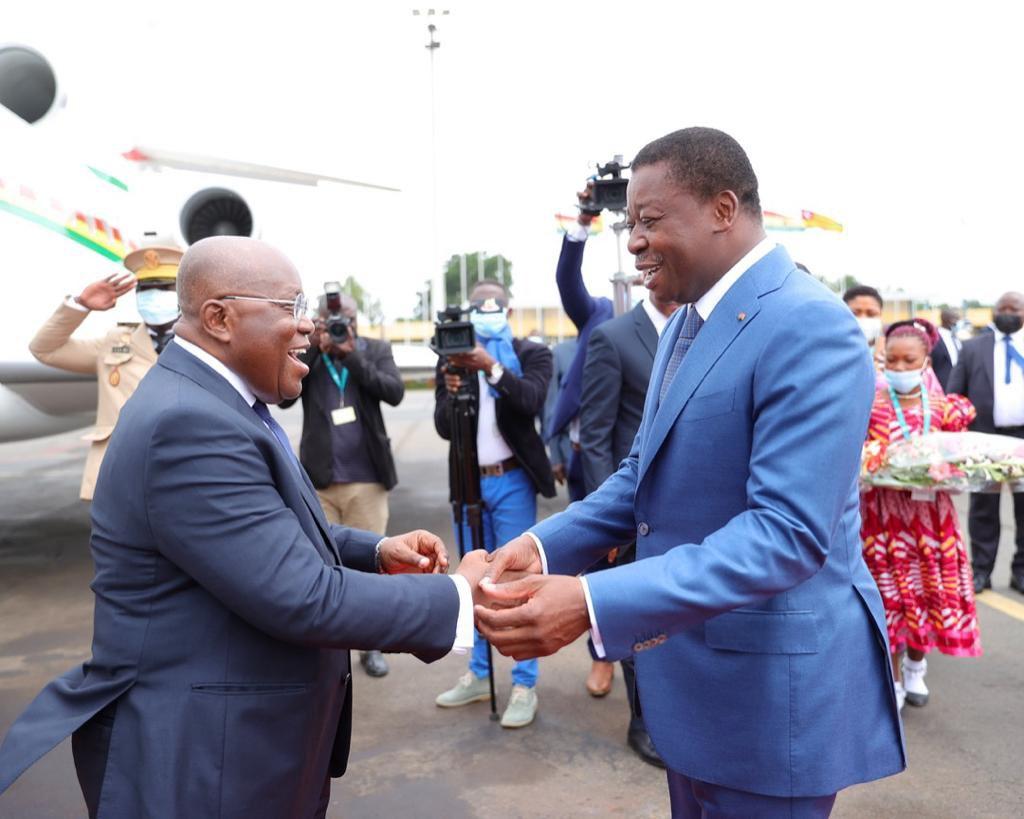-Togolese Human Rights Activist Alleges
Former Ghanaian President Nana Addo Dankwa Akufo-Addo is facing a blistering broadside from a prominent Togolese human rights activist, Farida Nabourema, who has unmasked what she calls a “gross betrayal” and “political complicity” in the suffocating political quagmire that gripped Togo between 2017 and 2018.
In an exclusive and damning indictment, Nabourema, a fearless crusader for democratic reform, accuses Akufo-Addo – who was touted as a regional mediator during the seismic anti-government protests – of deliberately sabotaging the people’s struggle for liberation, shamelessly siding with long-reigning autocrat Faure Gnassingbé under the flimsy veil of diplomacy.
The bombshell allegations strike at the heart of the crisis, which erupted when Faure Gnassingbé, a dictator etched into Togo’s history, brazenly attempted to abolish presidential term limits.
This audacious power grab ignited a firestorm of mass uprisings, rekindling desperate cries for democratic change in a nation held captive by the Gnassingbé dynasty for over half a century.
Nabourema, the indefatigable force behind the Katutu Civil Rights Center, laid bare the shocking sequence of events. At the zenith of the protests, a desperate Gnassingbé reportedly turned to Akufo-Addo, begging for assistance to crush the popular uprising.
What followed, according to Nabourema, was a calculated deception: Akufo-Addo summoned Togolese opposition leaders to Accra, where he masterfully “persuaded” them to cease their protests.
The bait? A solemn promise to ensure Gnassingbé would not seek another term in the highest office.
“Some of the opposition believed him – not because they were naïve, but because Akufo-Addo was a seasoned activist and a constitutional lawyer. They thought he would understand and champion democratic principles,” Nabourema revealed, her voice laced with a palpable sense of betrayal.
But what unfolded, she charged, was nothing short of a “shocking act of betrayal.” Not only did Gnassingbé audaciously run for a fourth presidential term, but he did so by shamelessly manipulating constitutional reforms, effectively “resetting” the term count and erasing his tyrannical reign from the legal record.
And throughout this brazen power play, Akufo-Addo, the supposed mediator, maintained a deafening silence, offering no objection, no condemnation, despite having urged the opposition to place their trust in him.
“While some opposition leaders were arrested and brutalized for their activism, Akufo-Addo stood by and watched Faure clinch another term. It was a political arrangement masked as mediation.
He chose friendship over justice,” Nabourema declared, her words dripping with bitterness.
She branded Akufo-Addo’s actions a “clear betrayal of democratic values,” accusing him of brazenly enabling an entrenched dictatorship at the expense of ordinary Togolese citizens who bravely risked life and limb for the flicker of change.
Farida Nabourema is now unleashing a clarion call, demanding that Ghanaian civil society rise up and vociferously condemn the ongoing oppression in Togo.
She insists that Ghanaian leaders be held accountable for actions that, she argues, have brazenly undermined democracy across the region.
With an urgent plea, she implored the current Ghanaian government to push for meaningful intervention through ECOWAS or bilateral channels, underscoring Ghana’s “historical responsibility” to stand in unwavering solidarity with oppressed peoples across West Africa.
“Togo has endured over 50 years of one-family rule. If Ghana won its freedom from dictatorship, it should not aid its neighbor’s enslavement. Silence is complicity,” she concluded with a chilling warning.
As cries for accountability and Pan-African solidarity echo across the continent, Nabourema’s blistering rebuke casts a harsh, unflinching spotlight on regional leaders who, in the name of a hollow diplomacy, have allowed despotism to fester unchecked.
By Leo Nelson


